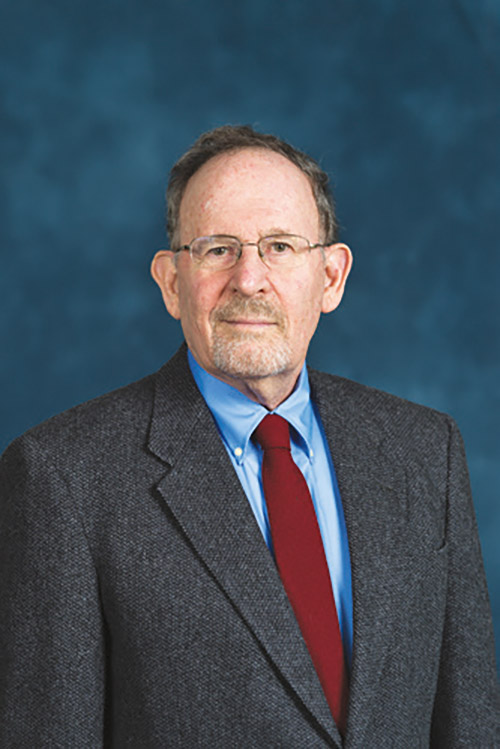
This Sunday, December 4, at 8 p.m., Rinat Yisrael, together with the American Jewish Joint Distribution Committee, will present a talk on “Neighbors Killing Neighbors…Again: Jewish Perspectives on the War in Ukraine” given by Dr. Zvi Gitelman, professor emeritus of political science and Preston Tisch Professor Emeritus of Judaic Studies at the University of Michigan.
Dr. Gitelman will discuss why the war occurred, why it did not go the way Russia anticipated it would go and the toll it has taken thus far. He will also talk about the hostile relationship the Jewish people had with Ukrainians over the centuries and why that changed beginning around 60 years ago.
Aaron Friedman, chair of the Adult Education Committee at Rinat Yisrael, said, “I would encourage anybody who wants to understand the Ukrainian-Russian conflict as a Jew to come because Dr. Gitelman is the leading academic in this field who can speak to this subject.” Friedman added that Dr. Gitelman is able to provide the most comprehensive background on the topic, and “he’ll allow us to understand what’s going on between Russia and Ukraine and how it affects all Jews.”
For over 400 years, violent antisemitism, pogroms and mass murder have plagued the region that is now known as Ukraine. In 1637, historians documented a Cossock rebellion that left thousands of Jews dead. Then there was the peasant uprising in 1648, led by Bohdan Khmelnytsky against wealthy non-Jewish Polish landowners. The uprising resulted in the brutal murder of 18,000 Jews who were targeted simply for being the stewards of their absentee landlords. Khmelnytsky, however, came to be hailed as a Ukrainian national hero for leading the uprising against the Poles.
Many more atrocities were perpetrated against Jews in that region, including the pogroms of 1881-82 and again, in 1919-1921, during the Russian Civil War, when approximately 100,000 Jews were slain. During World War II, thousands of Ukrainians collaborated with the Nazis, who were primarily responsible for murdering over a million Jews in Ukraine. So it’s no surprise that relations between the two groups of people had been nothing short of tense, antagonistic and downright virulent for centuries.
Although ruled at different times, and in different areas, by both Poland and Russia, Ukraine finally fell under Soviet rule by 1944. Before long, dissidents of both Jewish and non-Jewish origins found themselves imprisoned in the Soviet gulag where together they came to recognize a common enemy. With this newly shared perception by both groups suffering cultural and religious oppression at the hands of the Soviets, these dissidents started to forge a path that would ultimately unite the two factions. By the 1960s, relations between Ukrainian Jews and non-Jews started to show visible and substantial signs of improvement.
“A kind of mutual reconciliation began, which was greatly accelerated and much more widespread when Ukraine became independent in the fall of 1991. Since then, public Jewish life in Ukraine began to flourish as it had in Russia,” explained Dr. Gitelman.
Describing himself as a student of Russia and Eastern Europe for about 60 years, Dr. Gitelman said he has simply analyzed the situation and people can take from it what they want to take from it. Quoting Leon Trotsky, one of the most famous Ukrainian Jews, he said, “Consciousness lags behind reality,” and although the perception of Ukrainians is still somewhat negative, we should recognize that people change.
The fact that Ukrainian President Volodymyr Zelenskyy is Jewish is remarkable and something that many people would never have imagined possible in Ukraine. “The explicitly antisemitiic political groupings in Ukraine have failed to elect any meaningful number of representatives to the Ukrainian parliament and the American Jewish Joint Distribution Committee, Chabad and other Jewish organizations have provided a great deal of humanitarian aid to the Ukrainians in their struggle against the Russians. So that is a dramatic turning point in the relationship between Jews and Ukrainians,” Dr. Gitelman added.
Dr. Gitelman earned a PhD in political science with an emphasis on what was then Soviet politics from Columbia. He has written and edited 19 books, as well as numerous articles on Soviet, East European and Israeli politics. His books include “A Century of Ambivalence: The Jews in Russia and the Soviet Union, 1881 to the Present,” “Jewish Identities in Postcommunist Russia and Ukraine: An Uncertain Ethnicity” and “The New Jewish Diaspora: Russian-Speaking Immigrants in Israel, the United States, and Germany. His current research is on Soviet Jewish combatants in World War II, the Holocaust in the Soviet Union and the politics of history in the former socialist states. He speaks Russian, Hebrew and Yiddish fluently.
For more information on Dr. Gitelman’s upcoming talk, visit www.rinat.org.











